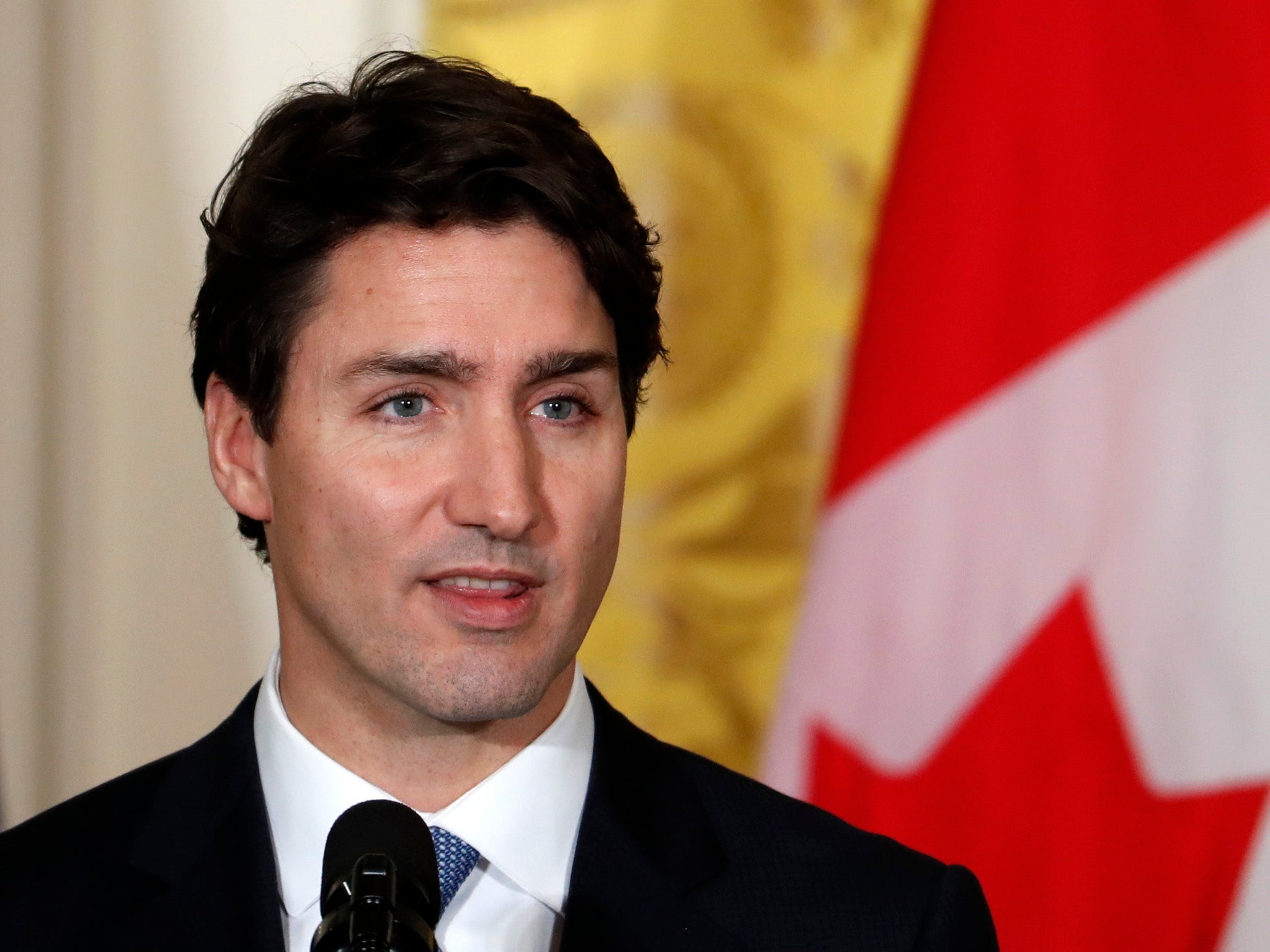Justin Trudeau wants to legalise cannabis, but as a Canadian I know he has bigger issues to deal with
The Prime Minister’s support for new oil pipelines runs contrary to the interests of indigenous groups and calls into question his liberal credentials, despite sticking to his guns on legalising pot


Canada’s Prime Minister Justin Trudeau checked off a key promise of his 2015 election campaign last month, tabling legislation to end the country’s prohibition on recreational marijuana.
If all goes according to plan, Canada will become the first G7 country to fully legalise cannabis use, with anyone over the age of 18 set to be able to carry up to 30g of dried or fresh marijuana and consumers able to buy or grow up to four plants at home.
The new bill marks a major notch on the Prime Minister’s belt regarding his bid to brand his Government as a progressive power and, whether you’re for or against marijuana legalisation, for many Canadians such as myself, it signals that the liberal Government is capable of delivering on its promises.
But before Canadians light up their pipes in celebration, aren’t there some other more pressing pipe-related plans they should be concerned about? Namely, the Keystone XL and Trans Mountain pipeline projects.
The controversy surrounding both projects appears to have been more or less quietly dropped out of the news cycle – despite the fact that trouble seems to be steadily brewing for Canada’s Prime Minister in his bid to fulfil his Government’s pipeline plans without compromising his position as a progressive leader.
Just last week three tribes, representing thousands of indigenous people from Canada and the United States, gathered in Calgary to sign a formal protest against the construction of TransCanada’s Keystone XL pipeline.
The Blackfoot confederacy in Canada and the Great Sioux Nation and Ponca Tribe in the US signed a 16-page declaration of opposition to the $8bn project set to transport Canadian crude oil to Nebraska in the US, where the pipeline would link to an existing Keystone pipeline network that would deliver it to refineries on the Texas Gulf Coast.
“We are in a time of crisis,” Piikani Nation Chief Stanley Grier said of the Keystone project, which was approved by US President Donald Trump days after he took office, despite being rejected twice by his predecessor Barack Obama, first in 2012 and then again in 2015.
“This crisis is not restricted to native people, but impacts all peoples,” Grier warned. “If you drink water, if you breathe, you are not immune.”
Trudeau was also greeted by protesters in the US on a trip last week to Seattle to discuss climate change, trade and the refugee crisis. Clad in hazardous material suits labelled “Keystone XL Toxic Cleanup Crew”, protesters gathered outside the hotel where the Canadian Prime Minister was meeting Washington governor Jay Inslee to demand answers on Trudeau’s commitment to the environment.
A coalition of environmental groups has further issued its own challenge to the federal permit allowing work on the pipeline project to go through, saying further environmental study is necessary. The group is also looking to use the document signed by indigenous communities to draw attention to the cause, with plans to send it to the United Nations, according to CBC News.
Trudeau’s commitment to fighting to protect the interests of Canada’s Indigenous communities was central to his election campaign, and it’s a vow that the Prime Minister has repeatedly renewed during his time in power.
Yet, so far, Trudeau has managed to effortlessly shrug off concerns being voiced by that very community over his pipeline plans, assuring Canadians that if either project posed a serious threat to the environment or indigenous communities, the Government wouldn’t be backing them.
The same goes for the Kinder Morgan Trans Mountain pipeline expansion project, which is expected to stretch nearly 1,000 kilometres from northern Alberta to the west coast of British Columbia, nearly tripling the existing network's capacity for transport of diluted bitumen from 300,000 barrels a day to nearly 890,000.
Sixteen groups, including indigenous communities and environmental organisations, have filed for a judicial review of the project and there have been concerns that objections from the NDP and Green opposition parties in British Columbia could thwart the expansion project’s progress.
The Prime Minister appeared to wave off those concerns on a trip to Edmonton, Alberta, on Saturday, stating only that his Government was working on “getting that balance right”, according to CTV News.
Trudeau did not address demands for a judicial review and suggested that opposition parties were “wrong” to suggest that backing the project calls into question the government’s ability to “protect the environment and build a better economy at the same time”.
It’s a tricky tightrope Trudeau is attempting to tread, but thus far the Canadian Prime Minister has proven himself to be a rather skilled acrobat. By focusing the spotlight on his more popular bid to legalise pot, Trudeau has managed to avoid any large-scale scrutiny over some of his more controversial plans.
And it helps that the majority of Canadians seem willing to practise a certain degree of cognitive dissonance in order to accept such assurances and maintain the happy haze that seems to have enveloped the northern country.
But the growing resistance to Trudeau’s pipeline plans are smoke signals warning of what's to come once work on the projects begins – and how he responds will provide a more telling picture of just how progressive our Prime Minister really is.



Join our commenting forum
Join thought-provoking conversations, follow other Independent readers and see their replies